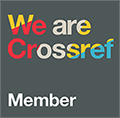Öğretmen Adaylarının Erken Çocukluk Döneminde Cinsel Eğitim ve Çocuk Cinsel İstismarına Yönelik Görüşleri
DOI:
https://doi.org/10.33308/26674874.2022362369Anahtar Kelimeler:
Cinsel Eğitim- Çocuğa Yönelik Cinsel Istismar- Erken Çocukluk Eğitimi- Öğretmen AdaylarıÖzet
Bu araştırma, okul öncesi öğretmen adaylarının okul öncesi dönemde cinsel eğitim ve çocuk cinsel istismarı hakkındaki görüşlerini ortaya çıkarmayı amaçlamaktadır. Verilerin 73 öğretmen adayı ile görüşülerek elde edildiği çalışmada durum çalışması araştırma deseni kullanılmıştır. Daha sonra içerik analizi yöntemi ile analiz edilen verilerin toplanması amacıyla hazırlanan yarı yapılandırılmış görüşme formu cinsel eğitimle ilgili 8 soru ve 2 kurgusal vaka kullanılarak oluşturulmuştur. Araştırma sonuçları, öğretmen adaylarının cinsel eğitim ve çocuk cinsel istismarı konularının önemli olduğunu vurgularken bu konuda yeterli bilgiye sahip olmadıklarını da göstermiştir. Katılımcılar kurgusal vakalara vermiş oldukları cevaplar incelendiğinde erken müdahale konusunda eksikliklerinin olduğu görülmektedir. Ayrıca araştırma sonuçlarına göre, ebeveynler çocuklara cinsel eğitim sağlanmasında en önemli paydaşlar olarak kabul edilmektedir. Ayrıca, okul öncesi öğretmenlerinin müfredatında cinsel eğitimle ilgili sorunların ele alınmasının çok önemli olduğu vurgulanmaktadır.
İndirmeler
İndir
Yayınlanmış
Nasıl Atıf Yapılır
Sayı
Bölüm
Lisans
Telif Hakkı (c) 2022 Yaşadıkça Eğitim

Bu çalışma Creative Commons Attribution-NonCommercial-NoDerivatives 4.0 International License ile lisanslanmıştır.
Sisteme yüklemiş olunan makalenin kapsamı, sunduğu bulgular ve sonucu ve yorumları konusunda Yaşadıkça Eğitim [YE] dergisi Sahibi, Editör, Editör Yardımcısı, Hakemler ve Editör Kurulu'nun hiçbir sorumluluk taşımadığını kabul ederim.
Makalenin özgün olduğunu, herhangi bir başka dergiye yayımlanmak üzere gönderilmediği, daha önce yayımlanmadığını Yaşadıkça Eğitim [YE] dergisi Editörlüğü'ne beyan ederim.
Başlığı belirtilen makalenin, 5846 sayılı Fikir ve Sanat Eserleri Yasasının 22. maddesi gereğince çoğaltma, 23. maddesi gereğince yayma ve 25. maddesi gereğince her türlü taşıyıcı materyal üzerinde veya elektronik ortamda kamuya iletim haklarını Yaşadıkça Eğitim [YE] dergisine karşılıksız, koşulsuz ve süresiz olarak devredildiği, makale ile ilgili devredilen hakların dilediği zaman, mekan ve koşullarda kullanmaya Yaşadıkça Eğitim [YE] dergisinin yayıncısı olarak İstanbul Kültür Üniversitesi'nin yetkili kılınacağını onaylarım.





